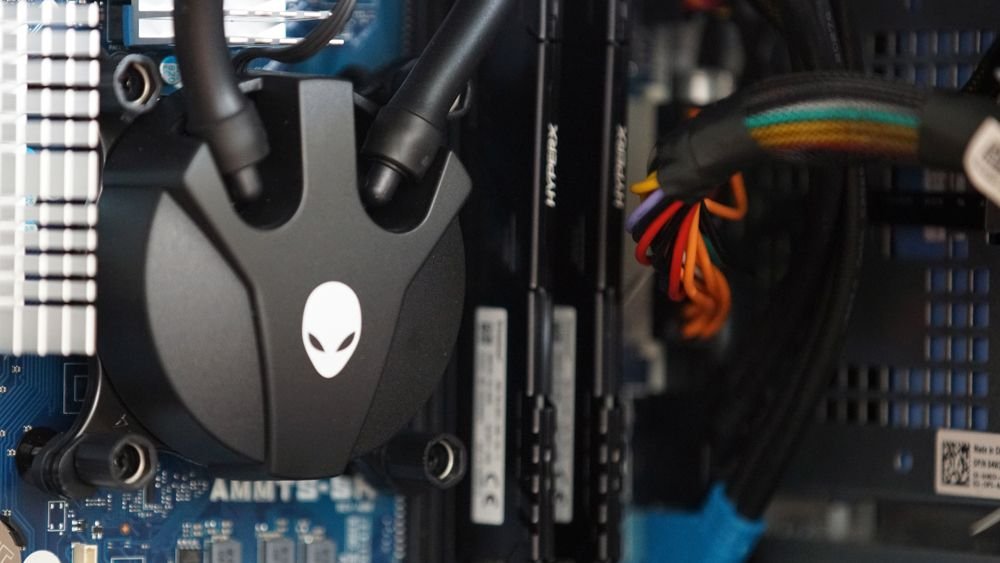
Some Alienware gaming PCs are so powerful that six states in the US don't let you buy them because of their excessive power consumption. Dell has announced that it will no longer ship some of its popular gaming PCs after California and five other US states introduced restrictions on the amount of power a personal computer could consume, measured in kWh per year. On Dell's US website, a prominent message on certain Alienware Aurora R10 and Aurora R12 desktop configurations reads: "This product cannot be shipped to the states of California, Colorado, Hawaii, United States of America. Oregon, Vermont or Washington due to energy consumption regulations adopted by these states. Any orders placed in these states will be cancelled. " The problem is that California and similar US states are passing regulations on the energy consumption of the information systems. A Dell representative confirmed to The Register that this is the case. "Yes, this was prompted by the California Energy Commission's (CEC) Tier 2 implementation, which set a mandatory energy efficiency standard for PCs, including desktops, all-in-ones, and mobile gaming systems. This went into effect on July 1, 2021. Certain configurations of the Alienware Aurora R10 and R12 were the only systems affected by Dell and Alienware."
Analysis: crypto mining is not the only problem in terms of energy consumption

(Image credit: Semiconductor Industry Association) The problem of increasing computing power consumption is perhaps most noticeable with current crypto mining issues, but a 2015 report from the Semiconductor Industry Association concluded that “computing it will not be sustainable by 2040, when the power required for computing exceeds the estimate. world energy production.” The reference system they used to make their determination used 10^-14 joules/bit-transition, although today's processors use less than that, around 10^-17/bit-transition. That figure is considered a good target for efficiency standards, but as the graph above shows, it's still on track to surpass global energy production shortly after 2040. In all likelihood, even that target could be optimistic.As a result, California and other US states have passed laws limiting the amount of power a computer can draw, forcing the industry to find new ways to improve the efficiency of its computers.So while some complain that 'nanny state' regulations are hindering your gaming, in the long run it will be better to have computers that use less power so you can keep gaming rather than having power to play at all.
 Some Alienware gaming PCs are so powerful that six states in the US don't let you buy them because of their excessive power consumption. Dell has announced that it will no longer ship some of its popular gaming PCs after California and five other US states introduced restrictions on the amount of power a personal computer could consume, measured in kWh per year. On Dell's US website, a prominent message on certain Alienware Aurora R10 and Aurora R12 desktop configurations reads: "This product cannot be shipped to the states of California, Colorado, Hawaii, United States of America. Oregon, Vermont or Washington due to energy consumption regulations adopted by these states. Any orders placed in these states will be cancelled. " The problem is that California and similar US states are passing regulations on the energy consumption of the information systems. A Dell representative confirmed to The Register that this is the case. "Yes, this was prompted by the California Energy Commission's (CEC) Tier 2 implementation, which set a mandatory energy efficiency standard for PCs, including desktops, all-in-ones, and mobile gaming systems. This went into effect on July 1, 2021. Certain configurations of the Alienware Aurora R10 and R12 were the only systems affected by Dell and Alienware."
Some Alienware gaming PCs are so powerful that six states in the US don't let you buy them because of their excessive power consumption. Dell has announced that it will no longer ship some of its popular gaming PCs after California and five other US states introduced restrictions on the amount of power a personal computer could consume, measured in kWh per year. On Dell's US website, a prominent message on certain Alienware Aurora R10 and Aurora R12 desktop configurations reads: "This product cannot be shipped to the states of California, Colorado, Hawaii, United States of America. Oregon, Vermont or Washington due to energy consumption regulations adopted by these states. Any orders placed in these states will be cancelled. " The problem is that California and similar US states are passing regulations on the energy consumption of the information systems. A Dell representative confirmed to The Register that this is the case. "Yes, this was prompted by the California Energy Commission's (CEC) Tier 2 implementation, which set a mandatory energy efficiency standard for PCs, including desktops, all-in-ones, and mobile gaming systems. This went into effect on July 1, 2021. Certain configurations of the Alienware Aurora R10 and R12 were the only systems affected by Dell and Alienware."
